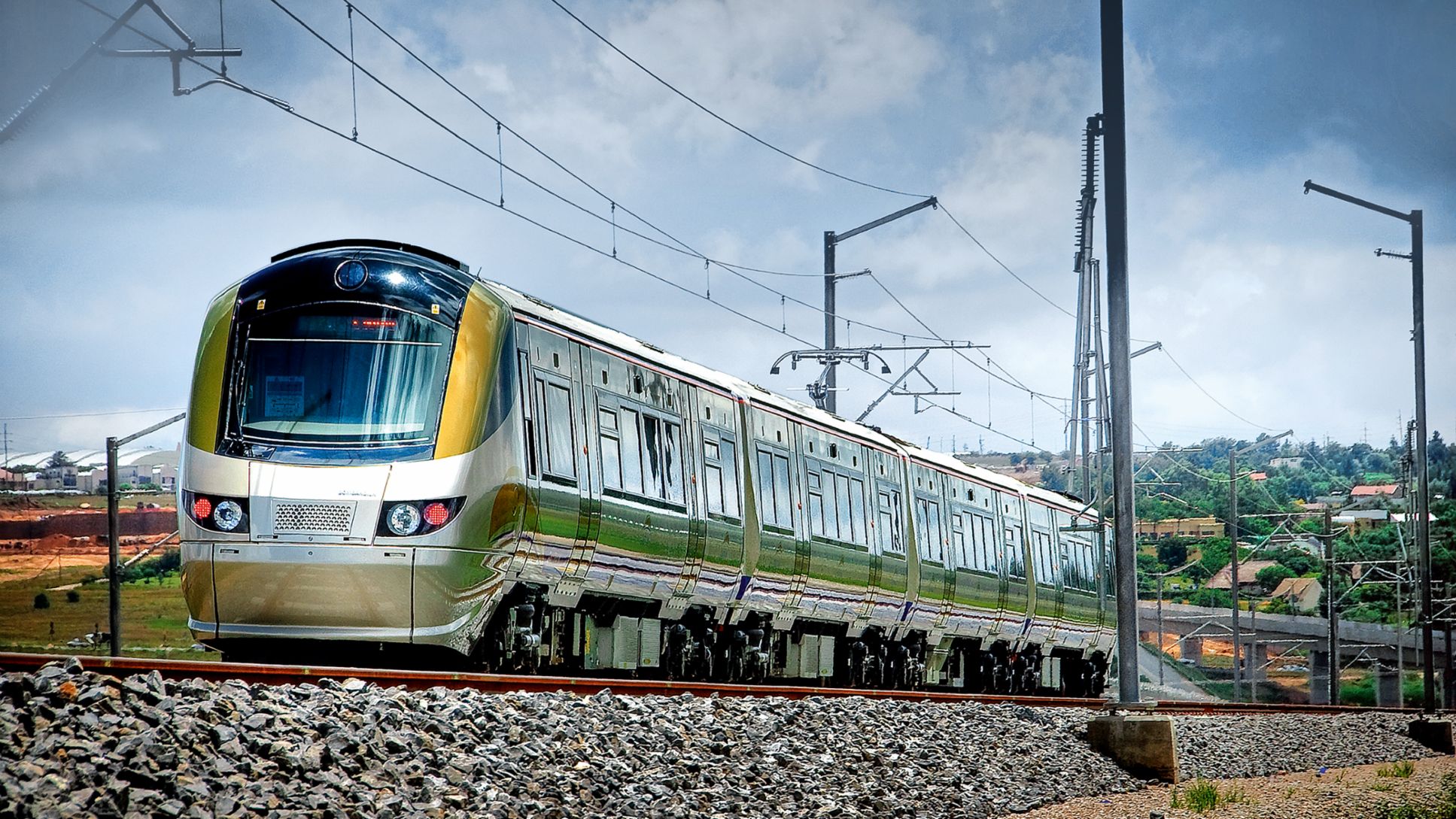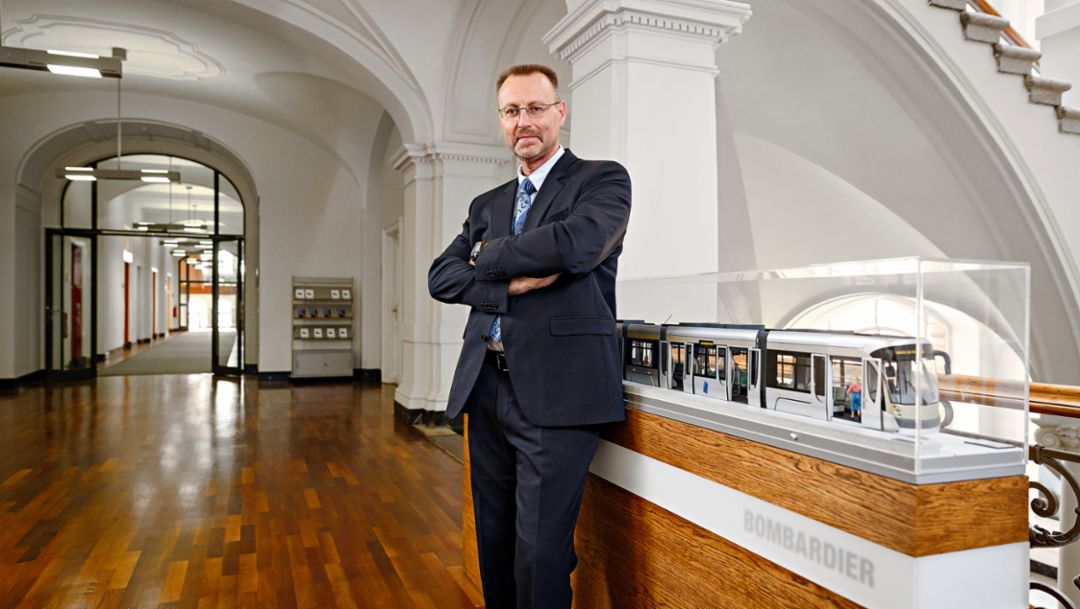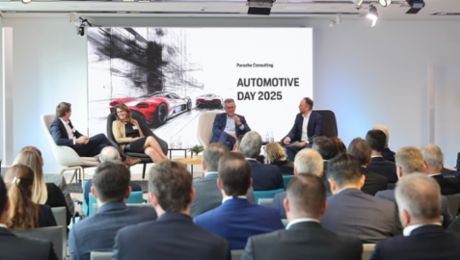Bombardier Transportation might not need to be all that concerned about the future. With ever more people in the world and ever larger cities, there is a rapidly growing demand for mobility. Around the globe, people are travelling in rail cars made by this international rail technology group—on high-speed trains in Germany, the USA, and China; on regional trains in Malaysia and Australia; and on metro trains in New York, Shanghai, Paris, and London. In 2013, sales from the company’s unparalleled portfolio of trains, railways, and other rail transportation systems climbed to nearly 6.5 billion euros—up 700 million euros from the year before. Bombardier Transportation is thus one of the leaders on the world market.
This does not automatically mean, however, that all future prospects are positive. Pressure from international competition has increased tremendously over recent years, and major players in Asia and Eastern Europe are moving into this booming business area. Moreover, the demands set by transport companies are high—and volatile. They can also change early in the development and production processes as a result of new legal requirements or technical specifications. In addition, detailed country-specific regulations, especially in smaller parts of Europe, can hinder new developments by requiring expensive technical adjustments to trains that travel across national borders.
Crucial factor: harmonize processes and requirements
As an alpha company, Bombardier, has to keep coming up with new ideas and improving its products on a continuous basis. And it is doing exactly that. “We are advancing our sector with innovative solutions that make our mobility products cleaner, more efficient, and more attractive,” says Philippe Crauste, Vice President Industrial Strategy & Operations at Bombardier Transportation. For example, the company has succeeded in dramatically reducing the fuel consumption of its trams by 30 percent or more. And trains that are removed from service are expected to be up to ninety-five percent recyclable. According to Crauste, a crucial factor for the future will be to harmonize the complex authorization processes and quality requirements for new rail systems, particularly within the EU but also in other parts of the world. “The first key steps have been made in recent years,” he notes, “but greater efforts will be needed to achieve real flexibility for rail transport.”
Bombardier Transportation is responding to these challenges by harmonizing its various sites around the world. With support from Porsche Consulting, the rail equipment maker is pursuing a new quality initiative as part of the Quality Excellence Strategy and rolling out group-wide programs to improve production. One aim is to ensure greater excellence in order to reduce quality costs and further enhance customer satisfaction. At the same time, the company is seeking to reduce inventory levels by methods such as targeted supply chain and logistics management, in order to increase cash flow. Quality management is being reworked across the board, including everything from speeding up problem solving to creating new organizational structures.
But a “one size fits all” approach cannot be applied to sites on several continents with a combined workforce of around 38,000 people. Now headquartered in Berlin, Bombardier Transportation has expanded through a number of acquisitions and has become a heterogeneous corporation with considerable variety among its 63 production and development sites in 26 countries. The main task thus consists of addressing the very different needs, product lines, and work cultures at the respective sites—while ensuring that the same aims are met. “It wouldn’t have made sense to push a standardized method from headquarters like a lawnmower over varied terrain,” says Dirk Pfitzer, Partner at Porsche Consulting. “So right from the start we’ve been working very closely together with employees everywhere to develop individual solutions within a uniform framework.”
Consultants worked in Europe, North America, South America, and Australia. Careful analyses of local production conditions were carried out before joint teams from Bombardier Transportation and Porsche Consulting developed their plans for action. In addition, members of different departments were brought together who otherwise rarely if ever work on the same projects. Management was involved throughout the entire process as well. Based on a continuous series of meetings and workshops, solutions were proposed by employees at the individual sites—not imposed from above or outside. “This approach was extremely helpful in eliciting employees’ understanding and acceptance and ensuring the projects’ success,” says Pfitzer. “The aim was always the same, but the way of achieving it was always adjusted to the individual site.”
“Coach-and-run” principle
“One key to success in the various projects consists of using different means of communication that demonstrate an understanding of the specific cultures and ways of working,” says Wolfgang Freibichler, Principal at Porsche Consulting, who has supervised roll-outs on four continents. “In Brazil or Australia, for example, you can gain employees’ trust by developing personal relationships over breakfast or dinner—that’s when they suddenly come up with creative and unconventional ideas. In Germany, by contrast, it is important to start by demonstrating your expertise, and then to proceed methodically and follow through by putting the steps into practice precisely as announced.” And in Mexico there are still other factors at play. Because it’s considered extremely impolite there to say “no” or “I don’t know,” problems can often remain undiscovered for long periods of time. These types of cultural differences have to be understood and reconciled. “Porsche Consulting’s flexibility and its ability to deploy consultants everywhere in the world who also speak the local languages have been major factors in success,” notes Crauste, adding that “the consultants are also able to work together with all levels of the corporation, from the management to hands-on production.” The “coach-and-run” principle has also been helpful. Right from the start, selected Bombardier employees were trained how to put the programs into practice. So they were quickly able to introduce projects themselves at other sites and find individual solutions on their own.
Central reporting and controlling systems as well as regular evaluations help to monitor the progress of the project at each site. “Track,” a database developed by Porsche Consulting, uses indices to render each stage of implementation transparently—and make improvements as needed. As Crauste explains, “Bombardier’s genetic make-up shows high quality standards firmly anchored in its production processes and its management. This enables us to show our customers that quality is our top priority.” And it lays superb foundations for the global growth of Bombardier Transportation.
Info
Text first published in „Porsche Consulting - THE MAGAZINE", Issue 15
Author: Sven Heitkamp





